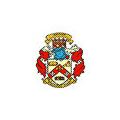Studies & Degrees in International Relations
Choose where you would like to study International Relations:
AlgeriaArgentinaArmeniaAustraliaAustriaAzerbaijanBangladeshBelarusBelgiumBrazilBulgariaCanadaChileChinaColombiaCosta RicaCzech RepublicDenmarkDominican RepublicEcuadorEl SalvadorEstoniaEthiopiaFinlandFranceGermanyGreeceHaitiHungaryIndiaIndonesiaItalyJapanJordanKazakhstanKenyaKyrgyzstanLithuaniaMaltaMexicoMoldovaNetherlandsNew ZealandNicaraguaNigeriaPolandQatarRussiaSaint Vincent and the GrenadinesSloveniaSouth KoreaSpainSwitzerlandThailandThe United KingdomThe United StatesTurkeyUruguayUzbekistanVenezuelaInternational Relations Study Programs
International Relations deal with the interactions of countries and communities on a political, social, economic, environmental, and other basis. An example of a question that students in International Relations could address is how the war in Iraq has affected relations between the United States and the world. As you can already guess, there is no purely white or black areas in such a degree, and a wide variety of disciplines are studied. You should be expecting to cover subjects like economics, political science, history, business, anthropology, sociology, and so on.
With such a multidisciplinary approach, the fields into which a graduate of International Relations can go are quite diverse. One of the most common professions mentioned is a diplomat, who would normally work in various embassies around the world. It should be noted, though, that this is a job very hard to secure. Regardless of the job type, however, what IR graduates usually do is explore and analyze current issues and happenings between countries, which normally involves travel and often a specialization in the relations between a couple of nations.
Personal Qualities
If you are naturally drawn to travel, to interacting with various cultures and exploring complex issues, then you already possess some of the qualities that match this degree option. These are a few others to think about:
- Genuine interest in international affairs and developments
- Excellent analytical and problem-solving skills
- Able to undertake research and draw conclusions
- Very flexible and adaptable to new situations
- Excellent organizational skills
Study Options
International Relations is a very sought after degree and requirements for entry are usually quite high. Although there is the possibility to earn a BSc in International Relations, and a lot of universities offer this option, a great number of students choose to pursue it at the graduate level. Often this seems like the more logical approach, as we already mentioned that the degree is very broad-based and provides students with the opportunity to expand their knowledge and gain skills, rather than prepare for a specific profession.
When studying a degree of this type, it would be a wise idea to research for a university with a multinational feel and direction. You should also very carefully assess the resources it offers to support your study in International Relations. These include not only library facilities, but also online journals, and possible guest speakers and lecturers. The clubs and students organizations that might support your degree are worth mentioning, too, together with any other study-related travel abroad opportunities.
Career options
Career opportunities are very interesting and diverse, and include but are not limited to the following options:
Government – a significant number of people with an IR degree choose to work for the Government. To get into such a position, you will most likely need a master’s degree, but there are always exceptions. Here are a few examples of departments with job opportunities: the Department for International Development, the Department of Commerce, as well as civilians in the Defense Department.
Diplomat – this option involves various functions from advising on foreign affairs and trade issues to assisting in the implementation of aid programs.
Journalism – this can be a very exciting, but at times dangerous profession; often correspondents are needed in areas like Afghanistan, Iran, Korea, and other similar areas, where events of world interest happen.
A good variety of other professions are also open to IR graduates, from positions in multinational corporations to history teacher jobs, so the choice greatly depends on the area of specialization you will choose.







